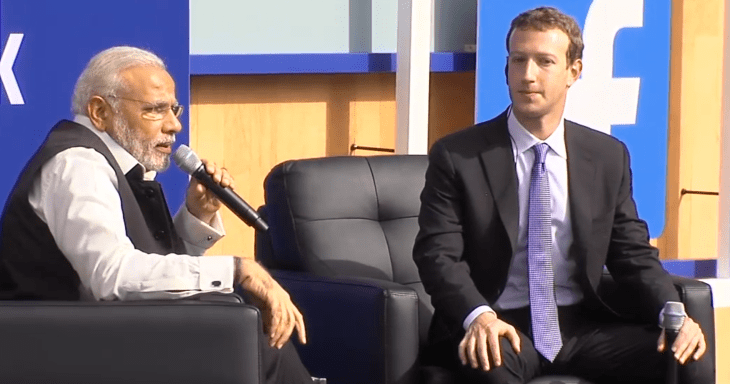Prime Minister Narendra Modi told Mark Zuckerberg that social media can show governments where they’re going wrong, and allow heads of state to connect more personably than ever before. During a townhall Q&A at Facebook’s Menlo Park headquarters, the two leaders talked about the modernization of India and discussed topics from the 40,000 questions and comments submitted by the public. The talk can be watched here.
As the world’s largest democracy and a massively lucrative market for tech companies, execs from several tech giants made time to meet with Modi during his visit to Silicon Valley this week, including Google, Apple, and Tesla, as Re/Code reported.
Modi is likely pushing his vision for Digital India, in hopes that tech companies invest more there so the sector can drive greater economic outcomes for the nation. However, Internet accessibility campaigns in India like Facebook’s Internet.org have endured criticism from those who think making certain companies gateways to the web could hurt Net Neutrality. Zuckerberg spoke at the U.N. yesterday pushing the idea that investments in Internet accessibility can alleviate poverty.
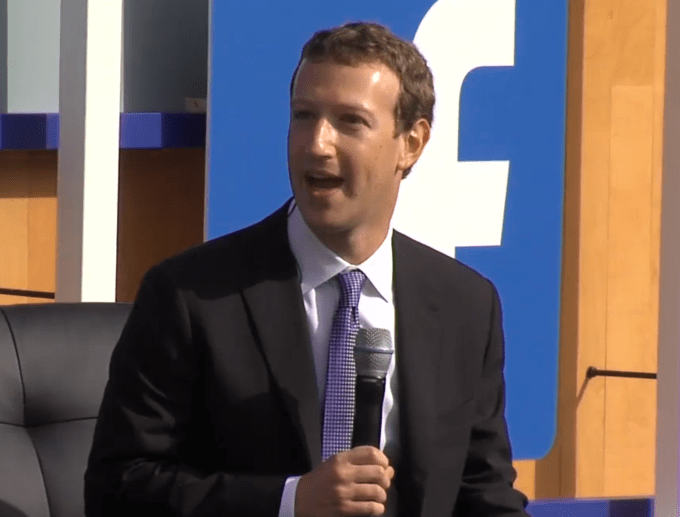
Zuckerberg began today’s talk by noting how his own travels to India reassured his confidence in building Facebook as an independent company.
“Early on in our history, before things were really going well and we had hit a tough patch and a lot of people wanted to buy Facebook and thought we should sell the company, I went and I saw one of my mentors Steve Jobs. And he told me that in order to reconnect with what I believed as the mission of the company, I should visit this temple that he had gone to in India early on in his evolution of thinking about what he wanted Apple and his vision of the future to be.
And so I went and I traveled for almost a month seeing the people, seeing how the people connected. And having the opportunity to feel how much better the world could be if everyone had a stronger ability to connect reinforced for me the importance of what we were doing. And that is something that I’ve always remembered over the last 10 years as we built Facebook.”
After thanking Modi for his commitment to creating a digital India, Modi returned the praise, complimenting Zuckerberg on being a role model for technologists.
Modi said that India is an $8 trillion economy today, but he dreams of it becoming a $20 trillion economy. Getting there will take success in three sectors:
- Agricultural sector
- Service sector
- Manufacturing sector
Modi sees social media as driving the service sector and tourism in India. It has the potential to educate people faster, by connecting us to human guides rather than textbooks.
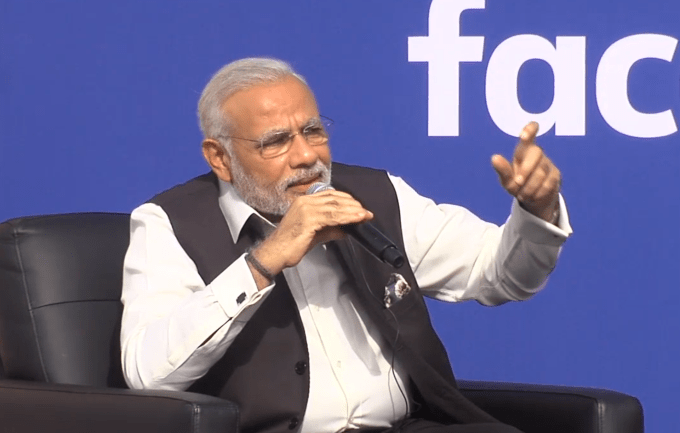
Via translator, Modi told Zuckerberg that social media “brought about a big change in my way of thinking”. He says people ostensibly vote via social media constantly, by sharing their opinion. It can make governments aware that they’re going in the wrong direction and gives them an opportunity to do a course correction.
Modi told the crowd “we used to have elections every five years, now we have them every five minutes.” If governments pay attention to this real-time information, they can improve their policy frameworks and speed up progress.
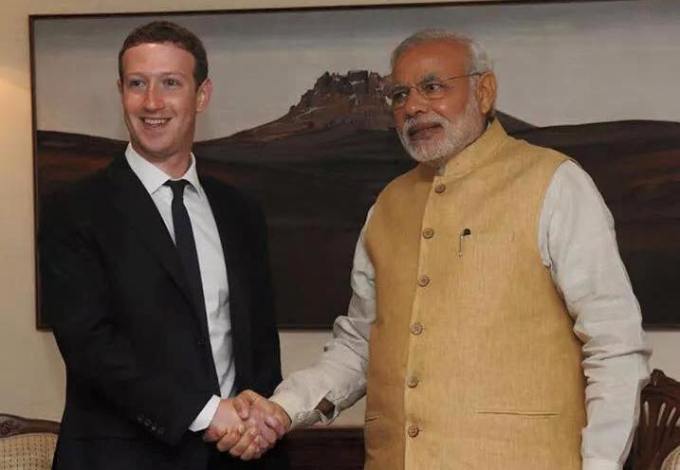
Social Diplomacy
Perhaps most interestingly, Modi described how he sees social media changing relationships between whole governments.
He told a story of how he wished China’s Prime Minister a happy birthday via Chinese social network Sina Weibo, and how that received a huge positive reaction from the public. Similarly, he congratulated the the Israeli Prime Minister in Hebrew for a festival in the country, and the Israeli Prime Minister thanked him in Hindi. That too went viral.
“I don’t think anyone ever thought this is what diplomacy would look like” Modi said.
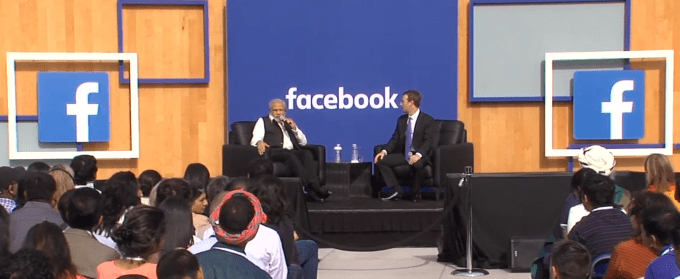
When asked about India’s commitment to empowering women, Modi launched into a passionate defense of the country’s initiatives to support gender equality. He noted that India was uniquely suited to the task as some of its gods are female. He said the nation’s “fundamental values” position women in a very important place.
Citing programs reserving places in goverment for women, offering financial support through housing only if women are the primary home operator, and the “Educate the girl child” campaign, Modi said India was making progress.
Modi admitted that “it’s true over thousands of years we’ve had a certain deterioration. But as far as the government is concerned, if we want to achieve our economic goals then we cannot do that if we imprision 50% of our population within their homes.”
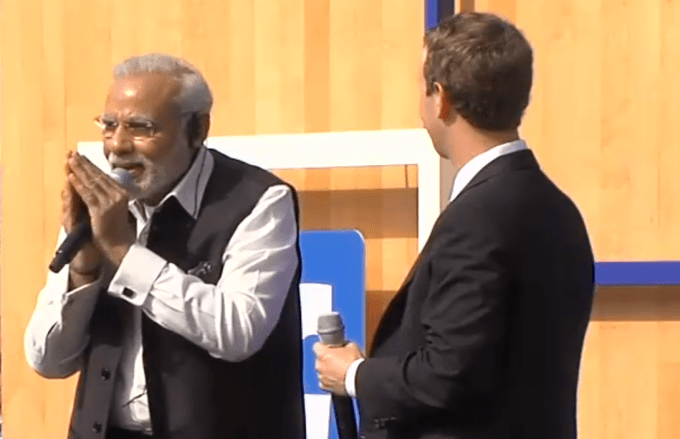
While today’s talk went smoothly, Facebook and India will still have to resolve the Internet.org situation to see if Facebook can help more Indians get on the web without being seen as excluding certain apps. Facebook is also staunchly pro gay rights, but India recently declared same-sex marriage illegal.
But if Zuckerberg and Modi’s relationship can tie Facebook and India closer together, the nation could become an even bigger market for the social network while locals gain access to the knowledge economy. That could not only connect Indians, but improve the average citizen’s quality of life.
